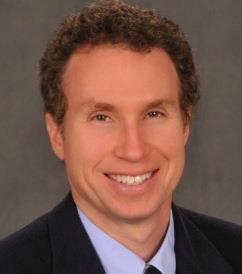2023 Conference on Religion and Science to focus on the variety of spiritual experiences
Event: Tenth annual Goshen College Conference on Religion and Science
Date and Time: March 10-12, 2023
Registration: Register online at goshen.edu/religionscience

The 2023 Goshen College Conference on Religion and Science will focus on the theme “The Varieties of Spiritual Experience” and feature keynote speaker Dr. Andrew Newberg. The conference will take place on campus from March 10-12, 2023.
Schedule of lectures (*denotes events free and open to the public):
Friday, March 10
7:30 p.m. – How God Changes your Brain*
Saturday, March 11
10:30 a.m. – The Varieties of Spiritual Experience*
4 p.m. – Principles of Neurotheology
Registered conference attendees participate in three discussions — conversations on the issues raised in the lectures, and hearing reactions from selected respondents to the lectures. This year registrants can choose to attend in person or virtually. For a list of registration prices visit goshen.edu/religionscience.
Conference attendees will also receive:
- a program booklet
- readings to prepare for the conference
- access to recordings of all the conference sessions after the conference ends
About Dr. Andrew Newberg
Dr. Andrew Newberg is the director of research at the Marcus Institute of Integrative Health and a physician at Jefferson University Hospital. He is board certified in internal medicine and nuclear medicine.
Newberg has been asking questions about reality, truth, and God since he was very young, and he has long been fascinated by the human mind and its complex workings. While a medical student, he met Dr. Eugene d’Aquili, who was studying religious experiences. Combining their interests with Newberg’s background in neuroscience and brain imaging, they were able to break new theoretical and empirical ground on the relationship between the brain and religion.
Newberg’s research now largely focuses on how brain function is associated with various mental states—in particular, religious and mystical experiences. His research has included brain scans of people in prayer, meditation, rituals, and trance states, as well as surveys of people’s spiritual experiences and attitudes. He has also evaluated the relationship between religious or spiritual phenomena and health, and the effect of meditation on memory. He believes that it is important to keep science rigorous and religion religious.




